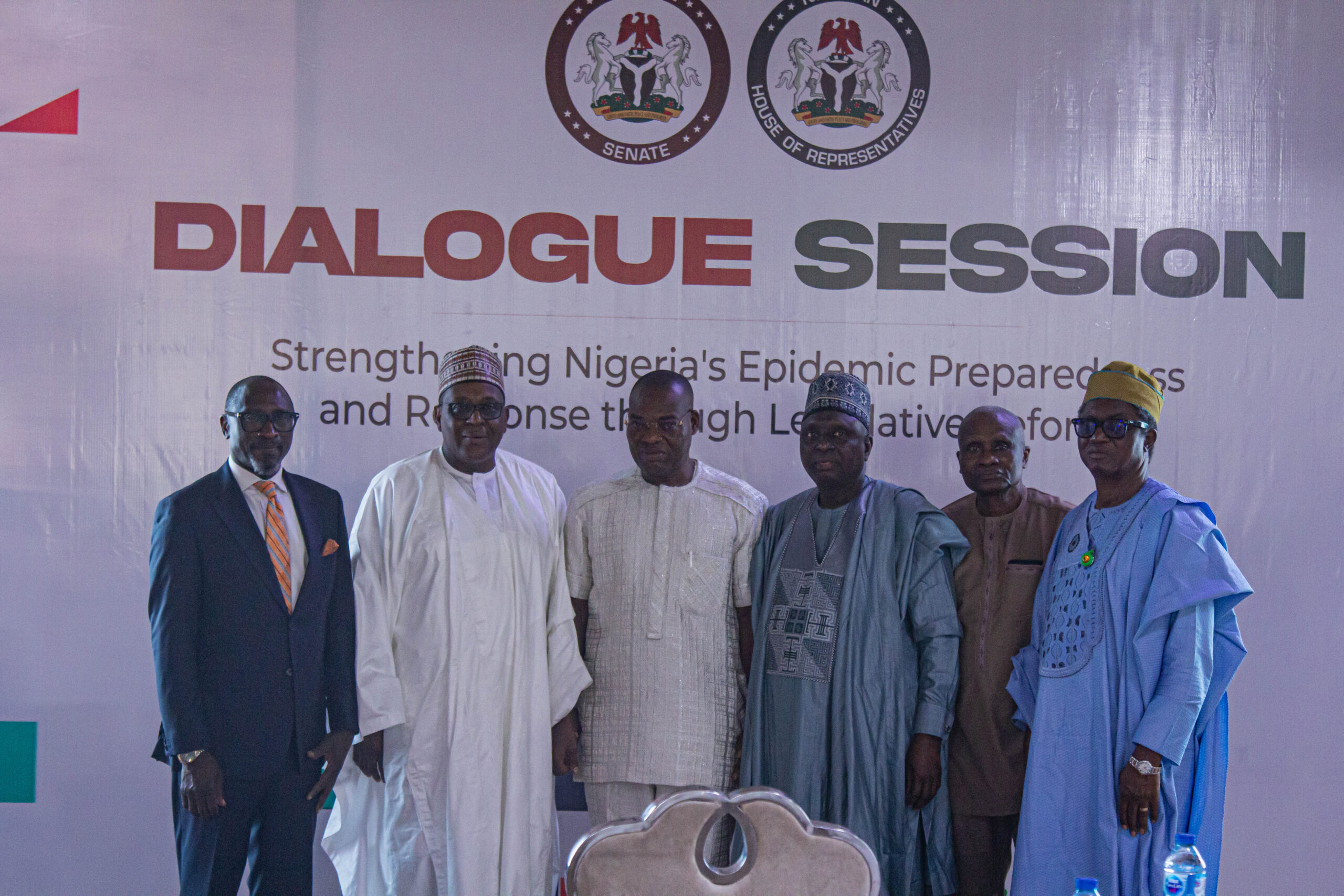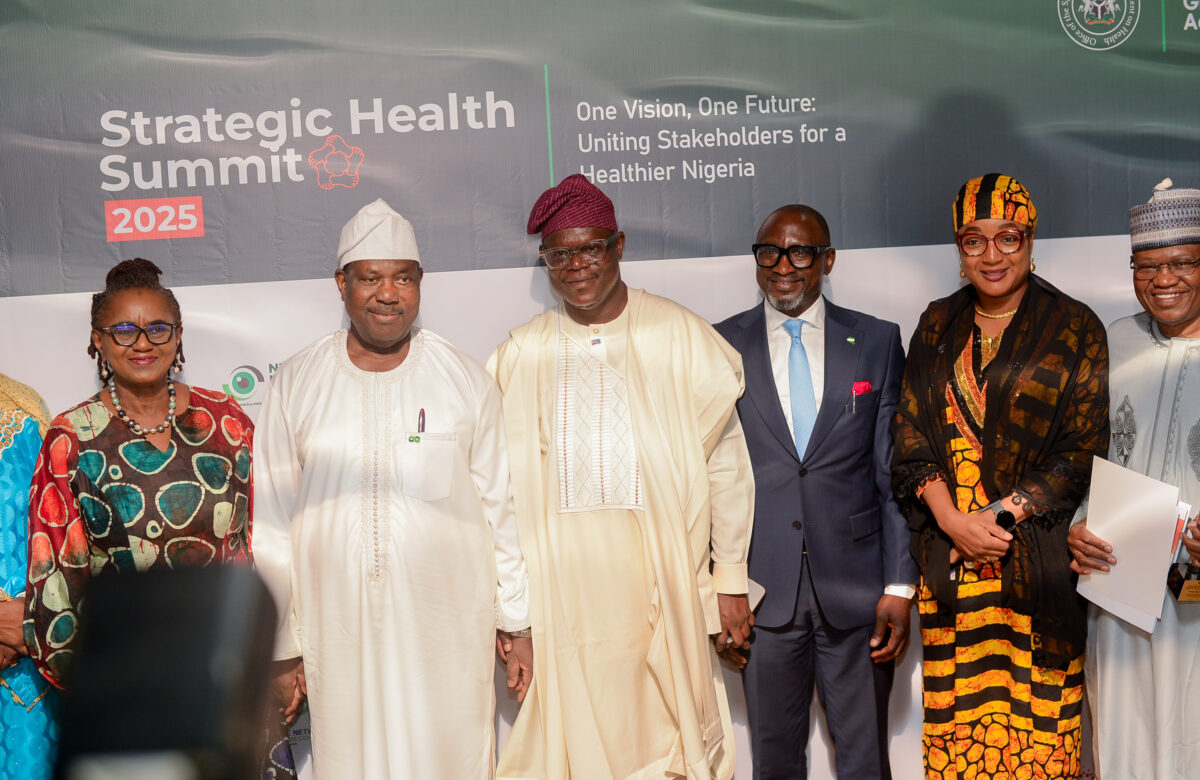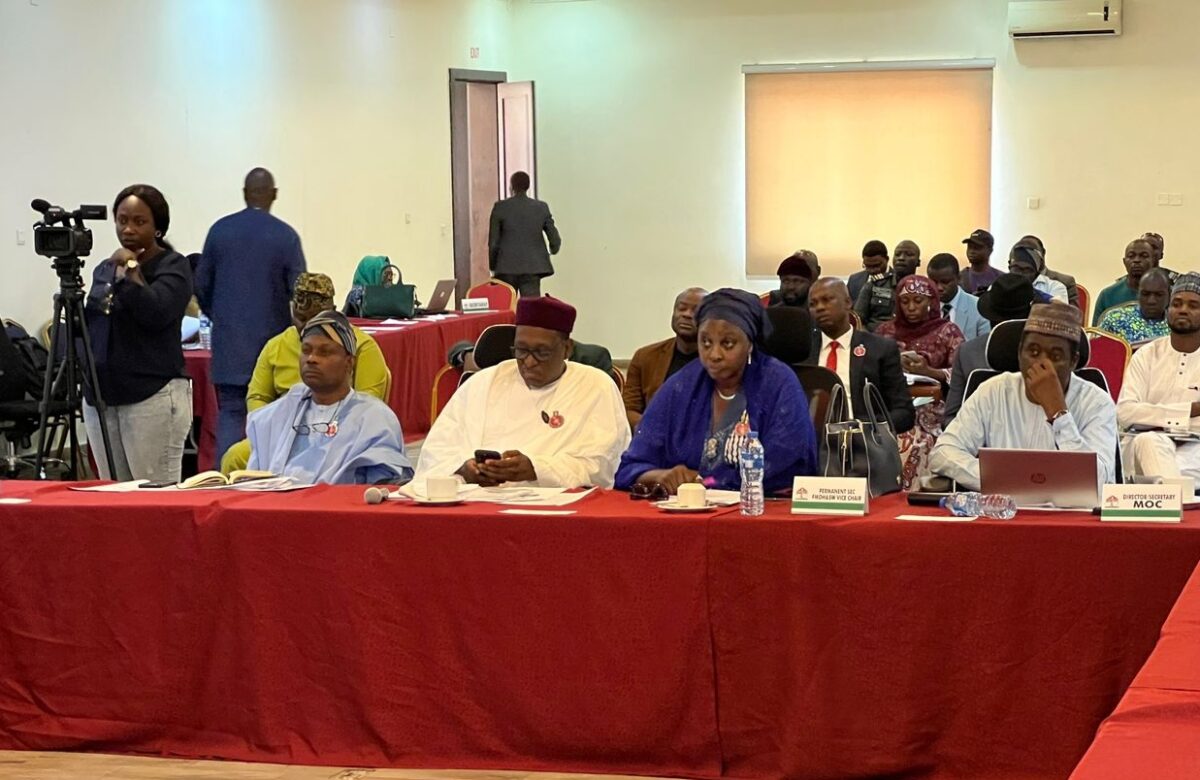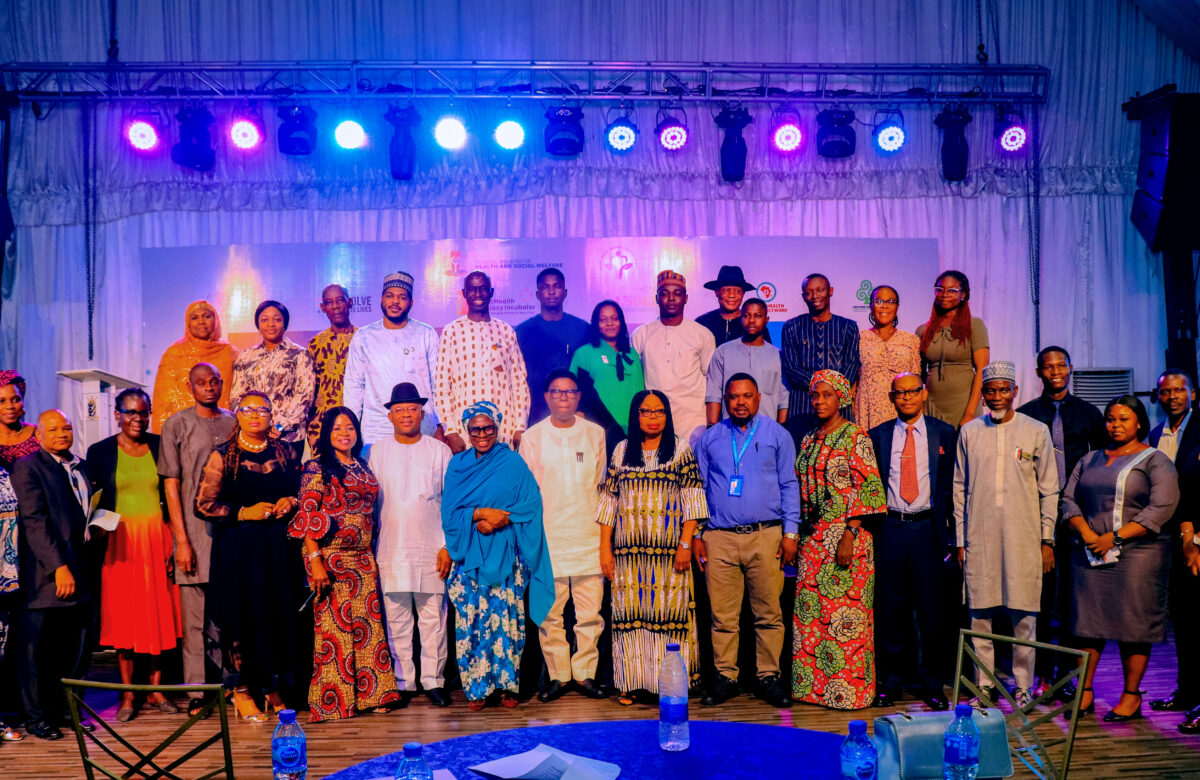
Stakeholders Commit to Strengthening Legislative Reforms for Epidemic Preparedness and Response in Nigeria
- Health Security
- No Comment
- 359

Stakeholders have pledged to strengthen legislative reforms and increase funding to bolster Nigeria’s public health security. This commitment was made during a policy dialogue on enhancing Nigeria’s emergency preparedness and response through legislative reforms, held in Abuja. The event was organized by the National Assembly Committee on Primary Healthcare and Disease Control and supported by the Legislative Initiative for Sustainable Development (LISDEL) through the Prevent Epidemic (PE) Project and funded by the Global Health Advocacy Incubator (GHAI).
The purpose of the dialogue was to engage national legislators on the benefits and status of both existing and pending health security legislation in Nigeria and to build consensus toward revitalizing and passing pending health security bills.
Participants included leadership and members of the Health Committees of the National Assembly, the Honorable Coordinating Minister for Health and Social Welfare, Prof. Mohammed Ali Pate, the Special Adviser to the President on Health, the Director General of the Nigeria Centre for Disease Control and Prevention (NCDC), and key Directors from the Federal Ministry of Health and Social Welfare. There was also representation from the Federal Ministry of Justice and the Nigeria Law Reform Commission (NLRC), the National Emergency Management Agency (NEMA), as well as Civil Society Organizations – Health Sector Reform Coalition (HSRC), development partners, and the media were also present.
In his welcome address, the Chairman of the Senate Committee on Primary Health Care and Disease Control, Senator Ibrahim Lamido, emphasized the urgent need for Nigeria to strengthen public health emergency responses and legislative reforms. Represented by the committee’s Vice Chairman, Senator Tony Nwoye, Lamido pointed out that various health crises have exposed significant gaps in the country’s preparedness, response capabilities, and healthcare infrastructure.
He stressed that to reinforce emergency response systems, the country must enhance surveillance and detection mechanisms, upgrade healthcare infrastructure and equipment, and develop effective emergency response laws.
“Our public health legislative framework requires urgent reforms to address critical issues such as inadequate funding, insufficient healthcare workforce and capacity building, limited access to healthcare services in rural areas, ineffective disease prevention measures, and inadequate emergency preparedness protocols,” he said.
“As policymakers, we must take decisive action to address these challenges. I propose a comprehensive review of our public health laws and policies, engaging stakeholders to develop evidence-based legislative reforms, ensuring sufficient resources and funding for public health initiatives, supporting healthcare research and innovation, and ensuring the effective implementation and monitoring of reforms,” he added.
Lamido further highlighted that the Bill on the Enactment of Public Health Emergency (2023), passed by the National Assembly on May 30, 2023, has yet to receive presidential assent. “The importance of this Bill to public health cannot be overstated, and I urge all stakeholders to ensure it becomes law,” he stated.
In his remarks, the Coordinating Minister of Health and Social Welfare, Prof. Mohammad Ali Pate, underscored the importance of contingent financing to address disease outbreaks. “Globally, contingent financing mechanisms ensure that resources are available during crises. You cannot always predict when a crisis will occur, but you must be prepared with resources when it does. I urge the legislature to consider the need for contingency financing,” the Minister noted.
In his presentation, the Chairman of the Senate Committee on Health in the 9th National Assembly, Senator Dr. Ibrahim Yahaya Oloriegbe, highlighted the gaps in Nigeria’s health security and the legislative efforts of the previous assembly. He mentioned that the Ninth Assembly had proposed several legislative measures, including the Public Health Emergency Bill, the NCDC Act 2018 Amendment Bill, the National Health Act 2014 Amendment Bill, the Quarantine Act Repeal and Reenactment Bill (also known as the National Port Health Services Bill), and the Animal Diseases (Control) Bill.
However, Oloriegbe pointed out that the Public Health Emergency Bill has not been forwarded to the President for assent, while the NCDC Act 2018 Amendment Bill is stalled at the second reading stage in the Senate and the first reading in the House of Representatives. Additionally, the National Health Act 2014 Amendment Bill has not been harmonized, and the Quarantine Act Repeal and Reenactment Bill remains unpassed in the House of Representatives. Moreover, the Animal Diseases (Control) Bill has not yet been gazette as law.
“Health security is a critical component of the health system, essential for achieving universal health coverage, national security, and economic stability. Legislative reforms are vital for ensuring an effective and functional health security system. A comprehensive health security law is necessary for an adequate response to epidemics, pandemics, and emergency preparedness,” Oloriegbe emphasized.
“The Public Health Emergency Law passed by the Ninth Assembly is the result of extensive consultation and consensus among stakeholders, and it should be reintroduced and passed for presidential assent. Recent developments in Nigeria’s health security landscape call for a review and amendment of the NCDC Act to reflect new realities. Likewise, the National Health Act 2014 requires urgent amendments to provide a sustainable legal framework for essential reforms,” he stated.
In their separate remarks, Honorable Amos Magaji and Honorable Adedayo committed to reintroducing the Public Health Emergency Bill and championing the reforms on the floor of the House.
Dr. Jide Idris, Director General of the Nigeria Centre for Disease Control and Prevention (NCDC), also highlighted the importance of legislative action in building a resilient health system for Nigeria.
“National and subnational legislators play a pivotal role in strengthening epidemic preparedness and response through strategic legal reforms and resource allocation. Enhancing budgetary provisions for the NCDC and emergency preparedness and response budgets at the state level, along with amending key health security laws, will significantly improve the country’s capacity to prevent, detect, and respond to epidemics. Multisectoral collaboration and proactive legislative measures are essential for ensuring an effective emergency preparedness and response system in Nigeria,” Idris said.
LISDEL





